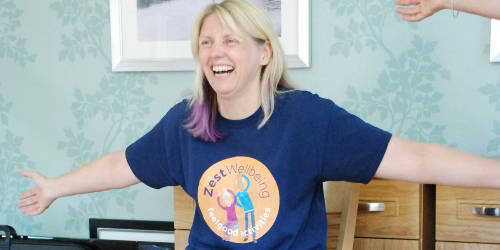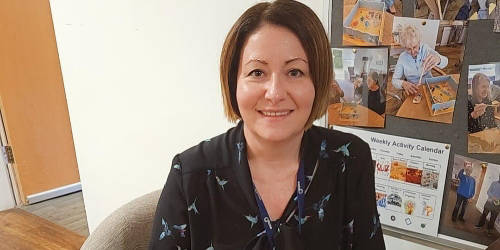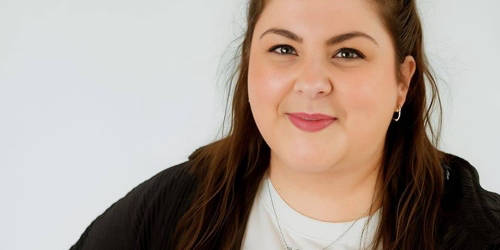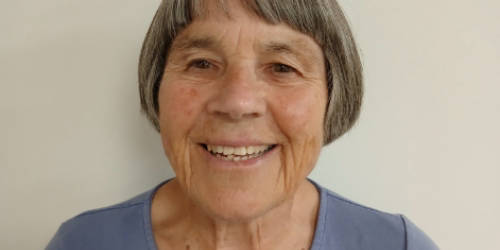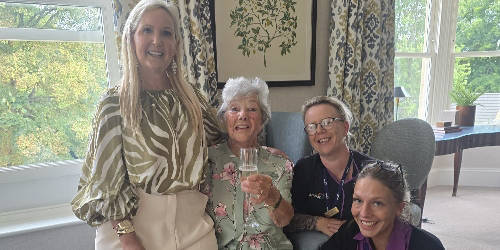- Home
- News & events
- Blog
- Autism in the workplace – Isaac’s story
26 March 2021
Autism in the workplace – Isaac’s story
We aim to celebrate diversity and inclusion in all that we do and Anchor Hanover is proud to be an equal opportunity employer. We work with both our residents and our colleagues to ensure inclusion is part of our everyday language and ways of working. With that in mind, we recently sat down with Isaac, care assistant at Nelson Lodge in St Neots, to talk about his experiences with autism and how it plays a part in his working life…
Hi Isaac! To begin with, can you tell us a little about autism?
Autism has three main characteristics: a social side, a sensory side and a communicative side. The social aspect means that whereas other people understand social cues such as body language and tone of voice, autistic people may struggle to pick up or understand that.
Sensory relates to the five senses. For me, it’s mainly auditory and touch. You may have heard of sensory overload - if there’s a lot of noises going on at once it can be stressful. For example, if four people are talking to me at the same time I struggle to process it and can become overwhelmed and need to go to a quiet place to calm down. People with autism are often better with firm touches as we can register and make sense of that rather than a stroke.
Autism is also often picked up in children as they do not develop verbal communication in the same way as others. We’re often better with picture cards or sign language. As I’ve got older it shows more as getting tongue tied, repeating myself or speaking quickly as I’m trying to get everything in my head all out. It’s a scaled disorder, so everyone will feel and portray different traits.
How does autism impact you?
When I was younger I didn’t have much verbal communication. I was labelled as a ‘naughty child’ and it took 3-4 years to get a diagnosis. As I’ve got older, I’ve noticed that in social situations I struggle to go up to people and start conversations. I’m fine if you come to me, but I struggle to go and start a conversation. The sensory part isn’t as bad now I’m older, but the auditory aspect is – particularly in care where there are bells going off etc. But I’m aware of this and can deal with it better.
Do you believe living with autism has impacted your career?
I think it has, particularly in interviews where communication is so key. I can either be a complete bag of nerves, or I over-compensate and talk at 50 mph as I want to get everything out! Working in jobs, I’m much more comfortable talking about my sexuality than my autism. There’s still a bit of a mystery around autism – people talk about it more in children than adults. Working in Anchor Hanover I was nervous at first, but this is honestly one of the best organisations I’ve worked with.
How would you say your autism affects your job role?
Definitely in a positive way – especially looking at dementia. I see some similarities with dementia, particularly with the sensory and communication side. I can have a bit more awareness if a resident is communicating stress so I can look to see if there is too much noise, too much light etc. With my diagnosis I like structure, like everything to be done and ordered and neat so for medication, handover, paperwork etc I will always go back and double check.
What made you apply for a role here?
I did a summer programme in accounts with Hanover Housing Association. When that finished, because I was aware of the care side of the business I came for an open day, chatted to the staff and liked the look of the place. I did some research online and found out how in touch they were with the LGBTQ+ community and the homely feel, and all the support the staff talked about getting.
What are your career ambitions?
I’m currently training to be a team leader. I’m really enjoying learning the medications and interactions, the medicinal and clinical side. Not set exactly on my career yet, but possibly clinical need or perhaps working with children and adults with additional, special needs.
What would be your advice for colleagues working with people with autism?
Understanding, doing some research to understand common traits etc. Autism is like being in a bubble and you’re looking out and want to join in, but don’t quite know how. Things can get lost in translation somehow. Routine is so important, so I can sometimes ask lots of times what time something is happening, or whether something is done. I’m not checking up on you, I just need to understand the plan for the day.
We’re no different to anyone else. I’m Isaac with autism, you’re XXX with glasses. It’s something we can’t change, and not would I particularly want to, to be honest!
Thank you so much for talking with us Isaac!
By working with colleagues like Isaac as well as our disability network, we at Anchor Hanover continue to make changes where we can, to improve how we support our workforce. We strive to ensure our employee base reflects the communities in which we work, and recruit, train and promote without discrimination. Find out more about how we promote diversity and inclusion here: https://www.anchorhanover.org.uk/guides-and-support/diversity
Read more from Anchor Hanover
This website uses cookies which track activity so that you get the best possible experience. By continuing to use this website we will assume you are happy and cookies will be set. You can change your cookie settings at any time.


